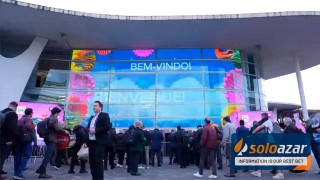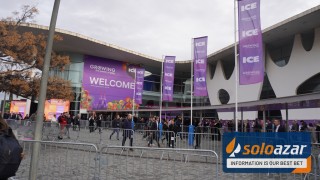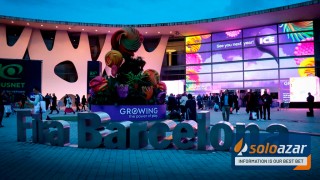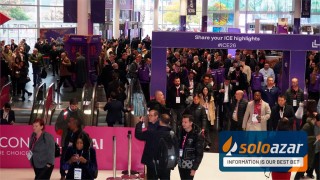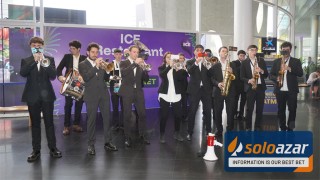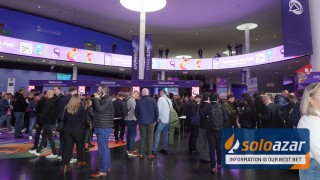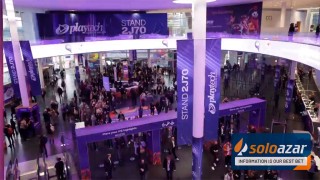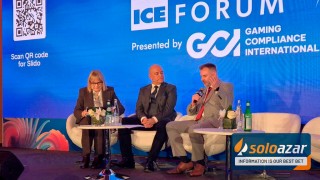Restrictions on online gaming advertising in Madrid to be reviewed
Thursday 18 de April 2024 / 12:00
2 minutos de lectura
(Madrid).- A decree to prohibit online gambling advertising on television, radio and YouTube, from one to five in the morning, added to the prohibition of sports sponsorships by betting houses, had been promulgated during 2020. However, last week, the Supreme Court annulled certain aspects of this decree, including limiting promotions for new players and influencer ads.
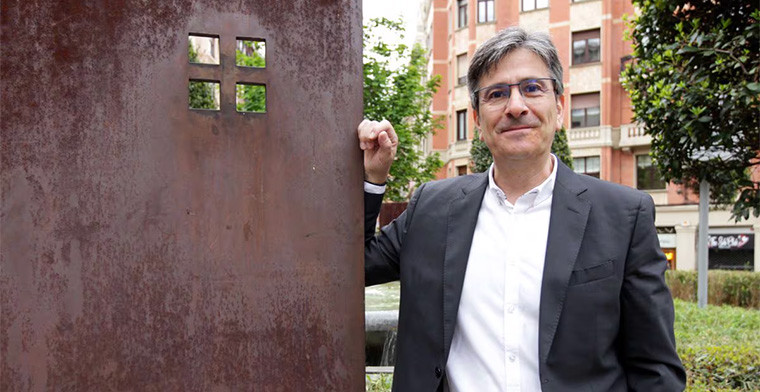
The general director of Gambling Regulation, Mikel Arana, considers that, in general, the ruling supports the regulations, but anticipates that the Executive will resume the annulled prohibitions because "they affect the most vulnerable groups." Arana (Ordizia, 50 years old), who has remained in office since the last legislature and claims to maintain a good relationship with the sector, gave an exclusive interview to a local media, from Bilbao.
How does the decree stand after the Supreme Court ruling?
We would like to convey a message of calm. The online advertising market is not going to be the jungle it was because the royal decree remains: audiovisual advertising will continue to be allowed only from one to five in the morning, while sports sponsorships will continue to be prohibited. There are some minor elements that have been annulled by the Supreme Court ruling and that are elements that affect more vulnerable groups, young people and adolescents: everything that has to do with influencers and social networks.
So will influencers be able to advertise on internet betting again?
Yes, they will be able to do it again on social networks, on the internet and on some websites, something that did not happen with the decree. We are very concerned because these are elements that affect the youngest. At the ministry [Ministry of Social Rights, Consumption and Agenda 2030] we want to reverse this situation. In coherence with that ruling, those elements that have been annulled by the Supreme Court ruling will have to be elevated to the rank of law. What changes are going to be introduced in the law?
We will promote a new package of measures that incorporates all those elements that have been annulled by the Supreme Court ruling, giving them the status of law that the Supreme Court understands they should have, which implies a reform of Law 13/2011 on the regulation of gambling with all these elements. If we understand that there may be elements that serve to better protect the most vulnerable groups, we will also incorporate them in this reform that will have to be promoted as soon as possible.
Do they have the numbers to approve this reform?
Taking into account that it is a law reform that involves the protection of vulnerable groups, and taking into account the different proposals that have been presented in the Joint Addictions Commission, it should be a reform that would not have any major problems in being approved.
What happens with the other two appeals before the Supreme Court?
There are three appeals (JDigital, La Liga and the Information Media Association) and, although the last two are still pending, the elements they affected were quite similar. The La Liga resource had some element related to in-person play, but that is a question that corresponds to the communities.
How has the betting advertising landscape changed since this decree was made?
It's a matter of turning on the television or turning on the radio. In 2019 it was impossible to watch a football match, or any live broadcast that did not include betting advertising. Now it is no longer like that, and in the future it will not be like that. Before the decree, 19 of the 20 teams in the First Division had sponsorship from sports betting houses and now none of them have it and it will continue to be that way. Yes, the issue of search engines is going to change: before, when someone searched for items that were not specifically gaming, they could see gaming advertising; That was changed with the decree and now it has been annulled and can happen again until we modify the law. There will once again be a little more presence of gaming advertising, but it will not be what it was, because what is consumed the most is audiovisual advertising.
Has this decree had any effect on the rate of gambling among young people?
We have not yet had time to analyze the effect of the decree, which came into full force in 2021. The studies that must be carried out are longer, a problem with gambling does not usually develop in six months. As we can see what the effects are, we will be able to know what consequences it has had in the years in force of the decree, and also in the months in which some measures will not be in force. That will also help us a little from a more purely statistical point of view to gauge what the consequences may be. What we have seen from prevalence studies is that online gambling in casinos generates a high level of risk in younger populations.
With the ruling, promotions can also be made again for new players.
That worries us because they are very aimed at younger audiences. In 2023, the main group of new active players was 18 to 25 years old. And this type of bonus is intended to attract new players. Since the new players are of such young ages, it is indeed an element of concern.
The online gambling sector said that this decree would promote illegal gambling in Spain. Has it occurred?
Three years after the decree it has not happened. It is always difficult to calculate the amount of illegal gambling, but by checking the percentage of payments to gambling games, we verify that there has not been an increase in illegal gambling in Spain, that payments are stable at around 2.5% or 3%. The gaming market has not gone backwards, but has continued to increase with very significant percentages.
Where has the money gone from that game advertising that was previously allocated to the media and the Internet?
What has been done is to reorganize the investment. Before, audiovisual investment accounted for a large part of much of the advertising money. Now, much of that money is being allocated to loyalty bonuses and another part to different websites to recommend bets and sponsorships. In the global calculation there has been a certain decrease, but we are talking about an expenditure of 401 million euros last year on advertising. In the audiovisual part there is still a high investment, because from one to five in the morning the market is practically filled with precisely this type of promotions.
Do you expect a rebound in the sector's investment in influencers?
It will be the decision of these types of influencers what type of advertising they want to do. What they cannot do is misleading advertising [the ministry is already sending information letters to those who did it]. Those influencers who were dedicated to the world of gaming, forecasters, have been advertising for a long time and making a lot of money. We understand that this area will remain there.
Have many sanctions been imposed on the gaming sector for failing to comply with the decree?
Yes, but many are still in process and are not firm. There have been many sanctions that have been imposed on illegal operators. Of the others, most are mild in nature.
Do you propose any new gambling developments in this legislature?
We want to regulate loot boxes aimed at children and youth. As was demonstrated in the prevalence study we carried out, the vast majority of consumers who activate loot boxes are minors: 24% of the population between 15 and 17 years old activated loot boxes, which have very similar risks to games of chance Our objective is to regulate them with a bill.
Categoría:Online Games
Tags: Sin tags
País: Spain
Región: EMEA
Event
ICE Barcelona 2026
19 de January 2026
Giorgio Dolce from Uplatform: "Our participation in ICE Barcelona 2026 was fantastic"
(Barcelona, SoloAzar Exclusive).- Giorgio Dolce, Sales Manager at Uplatfrom , reflects on a highly successful ICE Barcelona 2026, highlighting the impact of the company’s distinctive booth, the strong interest in its turnkey platform and sportsbook, emerging trends such as LatAm regulation and crypto casinos, and the firm’s strategic priorities for 2026.
Tuesday 10 Feb 2026 / 12:00
EGT Digital’s Post-ICE Barcelona 2026: Stronger Partnerships, Hybrid Innovation and Global Expansion
(Barcelona, SoloAzar Exclusive).- Head of Sales Tsvetomira Drumeva reflects on EGT Digital’s successful participation at ICE Barcelona 2026, the impact of EGT Lounge, emerging industry trends, and the company’s strategic priorities for growth across regulated markets in 2026.
Tuesday 10 Feb 2026 / 12:00
Darío Zutel talks all about Win Systems' presence at ICE Barcelona 2026
(Barcelona, SoloAzar Exclusive).- Darío Zutel, Executive Chairman of Win Systems, reviews the results achieved at ICE Barcelona 2026, highlights the strategic quality of the contacts generated, the momentum of cashless solutions with WIN PAY, and outlines the company's innovation and expansion plans across the Americas, Europe, and other key international markets.
Monday 09 Feb 2026 / 12:00
SUSCRIBIRSE
Para suscribirse a nuestro newsletter, complete sus datos
Reciba todo el contenido más reciente en su correo electrónico varias veces al mes.










